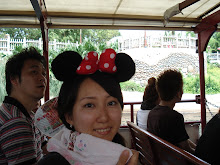Pick one concept from the assigned reading that you found useful or interesting and discuss it.
The textbook asks, “Do the media create desires, or do they simply give the public what it wants?” (303)
I agree with both opinions.
The one side, limited effects model and obstinate audience theory states that viewers are not passive but have power to interpret messages by their own (303). I partially agree with this view. For example, these days in Japan, there are lots of news about food security. It started from frozen dumplings from China that contained poisonous chemicals. Then, almost once or twice a month, there were news about food, such as noodles, cheese, and sweets that that were found with toxic chemicals inside. People, especially housewives’ responds to these news were so great that consumptions of these products were decreased dramatically. Furthermore, people started check where products were made when they go grocery shopping, and choose products from farms where they can trust. Thus, when I go to a grocery store, I can see detailed descriptions of farms, such as place, a name of farm and even names of farmers.
I don’t think a topic about food security has been picked up so much because media wanted to do so. I rather think it has been picked up because viewers showed a lot of interest on that topic.
I also agree with the other side, powerful effects model (303). It happens every day that TV picks up one incident exaggeratedly, but the topic is swept away by another incident on the next day. For example, there was a news about a group of mysterious people with full of white clothes walking in a mountain. All the TV news were about the group all day on that day, and reported that the group might be a cult group and dangerous. Next day, the news was gone and different news were broadcasted. I wondered, “What happened to the white clothes group?” I felt that TV is really a gatekeeper of issues, and we are passive and have no control choosing what we should know about.
Final Post
17 年前
